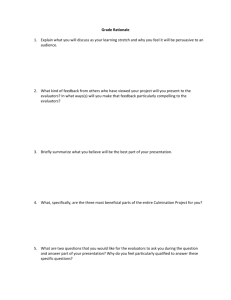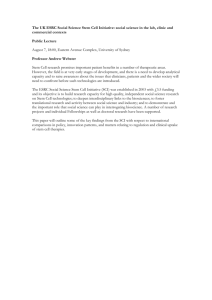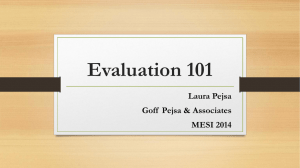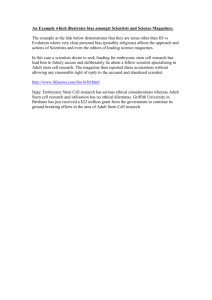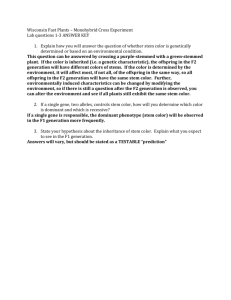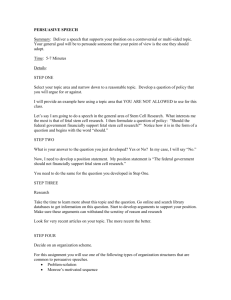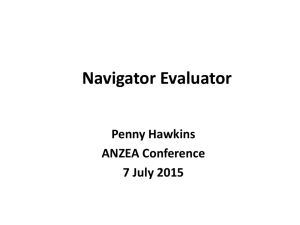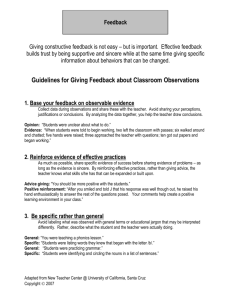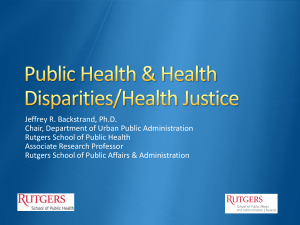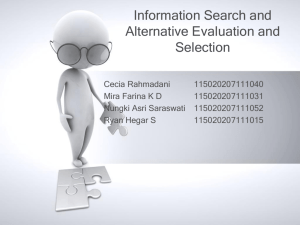Examining Racism and Sexism in STEM Higher Education: The
advertisement
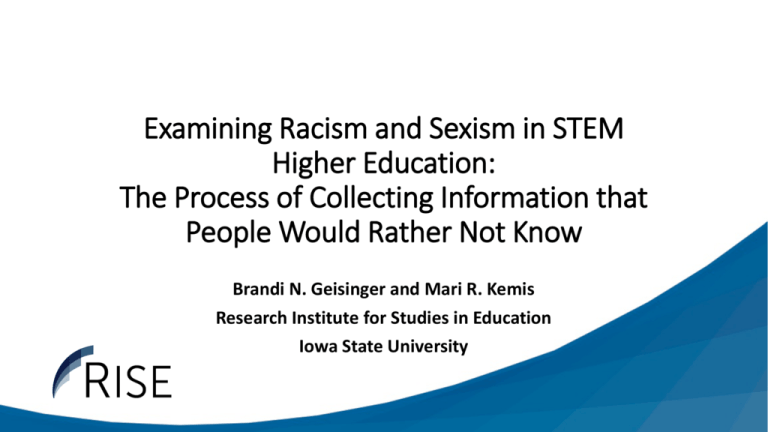
Examining Racism and Sexism in STEM Higher Education: The Process of Collecting Information that People Would Rather Not Know Brandi N. Geisinger and Mari R. Kemis Research Institute for Studies in Education Iowa State University Background • The struggle in STEM fields to create racial and gender parity is welldocumented in the educational and evaluative literature. • We were approached by a group of stakeholders who were interested in conducting an evaluative climate study to uncover issues related to gender and diversity in a STEM department at a large Midwestern university. Challenge Administrators Faculty/Staff Evaluators Evaluator Role • Meet the needs of both groups of stakeholders • Conduct an evaluation that upholds the program evaluation standards • Reduce stakeholder anxiety Strategies • Provide research support for proposed evaluation methods and history of use • Visualization changes • Provide pilot information • Compromise Survey Information • Rating of the campus climate • Demographic and background information • Identity-based experiences on campus • Based on your identity (e.g., race, gender, ethnicity, sexual orientation, religion, ability/disability, military status, or socioeconomic status), have you personally experienced any disrespectful, offensive, hostile, or intimidating conduct in this department? • Belonging, connectedness, and involvement Resolution • Conducted the survey • Provided a technical report and additional analysis as requested • Committee used the report to make specific recommendations to learn more about racial and gender disparities in the department, take steps to attempt to reduce these disparities, and conduct follow-up evaluations after making changes References • Carter, R. K. (1971). Clients’ resistance to negative findings and the latent conservative function of evaluation studies. The American Sociologist, 6(2), 118124. • Donaldson, S. I., Gooler, L. E., and Scriven, M. (2002). Strategies for managing evaluation anxiety: Toward a psychology of program evaluation. American Journal of Evaluation, 23(3), 261-273. • Yarbrough, D. B., Shulha, L. M., Hopson, R. K., and Caruthers, F. A. (2011). The program evaluation standards: A guide for evaluators and evaluation users (3rd ed.). Thousand Oaks, CA: Sage.

